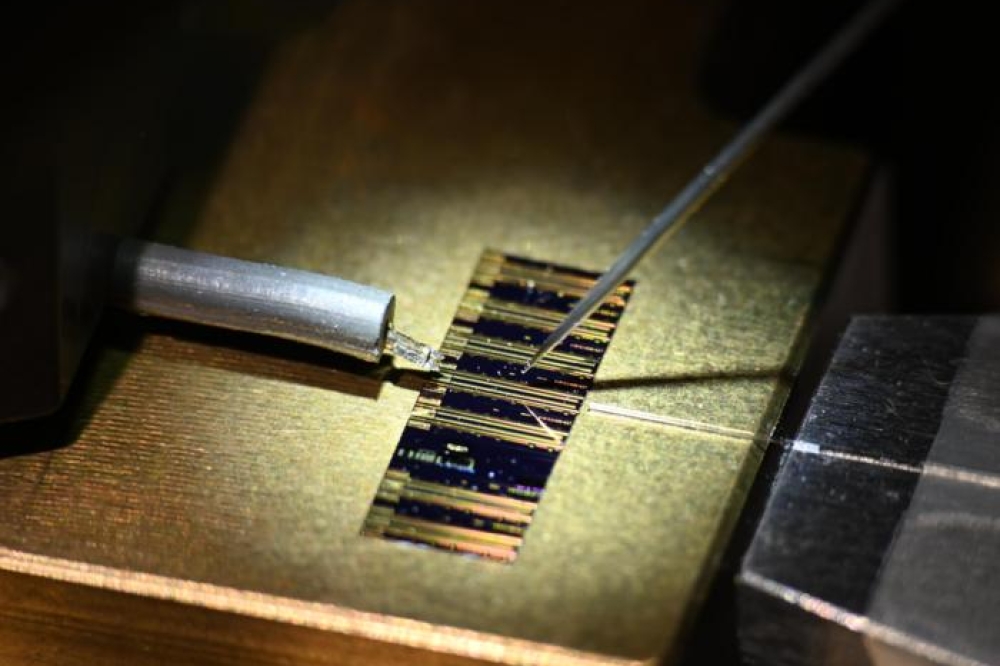News Article
First Solar says its CdTe 17 percent efficiency is top
The firm's total area efficiency cadmium-telluride module has been confirmed by NREL. This result is expected to expand the opportunity for constrained space and C&I installations
First Solar has announced that it has set a world record for CdTe photovoltaic (PV) module conversion efficiency,.
The firm achieved a 17 percent total area module efficiency in tests performed by the U.S. Department of Energy's National Renewable Energy Laboratory (NREL).
The new record is an increase over the prior record of 16.1 percent efficiency, which the company set in April 2013.
This announcement comes weeks after First Solar said it achieved a world record in CdTe research cell efficiency of 20.4 percent.
The record-setting module was created at First Solar's Research and Development Centre in Perrysburg, Ohio, using production-scale processes and materials, and included several recent technology enhancements that are incrementally being implemented on the company's commercial production lines.
Notably, the First Solar research module also has a confirmed 'aperture area' conversion efficiency of 17.5 percent. Many manufacturers often quote this aperture area efficiency when claiming record performance, particularly for small mini-modules custom-built in R&D labs. First Solarclaims its record is all the more significant because it is full production size.
"This achievement demonstrates our ability to rapidly and reliably transfer research results to full-size modules. We can take CdTe innovation from the lab to production faster and more reliably than other technologies due to our robust, adaptable manufacturing processes and the accommodating nature of CdTe material technology," says Raffi Garabedian, First Solar's Chief Technology Officer.
He adds, "Our R&D efforts are delivering technology that will quickly be scaled to real-world application as part of our integrated power plant systems, which are engineered to deliver the best performance, reliability and value for our customers."
Garabedian adds that the efficiency milestone is also a signal that First Solar's CdTe modules are becoming a more attractive option for application in constrained space projects and commercial/industrial installations. "With the highest demonstrated thin-film module performance, we are positioned to pursue new deployment opportunities around the world," he continues.
Based on the company's sustained high velocity in technology development, Garabedian says First Solar has accelerated its production module conversion efficiency roadmap, raising its lead-line production nameplate efficiency target for YE2015 to 15.6 to 15.8 percent.
First Solar also extended its module conversion efficiency roadmap to 2017, with targets for year-end lead-line production nameplate efficiency of 17.7 to 18.4 percent in 2016 and 18.1 to 18.9 percent in 2017.
The firm achieved a 17 percent total area module efficiency in tests performed by the U.S. Department of Energy's National Renewable Energy Laboratory (NREL).
The new record is an increase over the prior record of 16.1 percent efficiency, which the company set in April 2013.
This announcement comes weeks after First Solar said it achieved a world record in CdTe research cell efficiency of 20.4 percent.
The record-setting module was created at First Solar's Research and Development Centre in Perrysburg, Ohio, using production-scale processes and materials, and included several recent technology enhancements that are incrementally being implemented on the company's commercial production lines.
Notably, the First Solar research module also has a confirmed 'aperture area' conversion efficiency of 17.5 percent. Many manufacturers often quote this aperture area efficiency when claiming record performance, particularly for small mini-modules custom-built in R&D labs. First Solarclaims its record is all the more significant because it is full production size.
"This achievement demonstrates our ability to rapidly and reliably transfer research results to full-size modules. We can take CdTe innovation from the lab to production faster and more reliably than other technologies due to our robust, adaptable manufacturing processes and the accommodating nature of CdTe material technology," says Raffi Garabedian, First Solar's Chief Technology Officer.
He adds, "Our R&D efforts are delivering technology that will quickly be scaled to real-world application as part of our integrated power plant systems, which are engineered to deliver the best performance, reliability and value for our customers."
Garabedian adds that the efficiency milestone is also a signal that First Solar's CdTe modules are becoming a more attractive option for application in constrained space projects and commercial/industrial installations. "With the highest demonstrated thin-film module performance, we are positioned to pursue new deployment opportunities around the world," he continues.
Based on the company's sustained high velocity in technology development, Garabedian says First Solar has accelerated its production module conversion efficiency roadmap, raising its lead-line production nameplate efficiency target for YE2015 to 15.6 to 15.8 percent.
First Solar also extended its module conversion efficiency roadmap to 2017, with targets for year-end lead-line production nameplate efficiency of 17.7 to 18.4 percent in 2016 and 18.1 to 18.9 percent in 2017.































